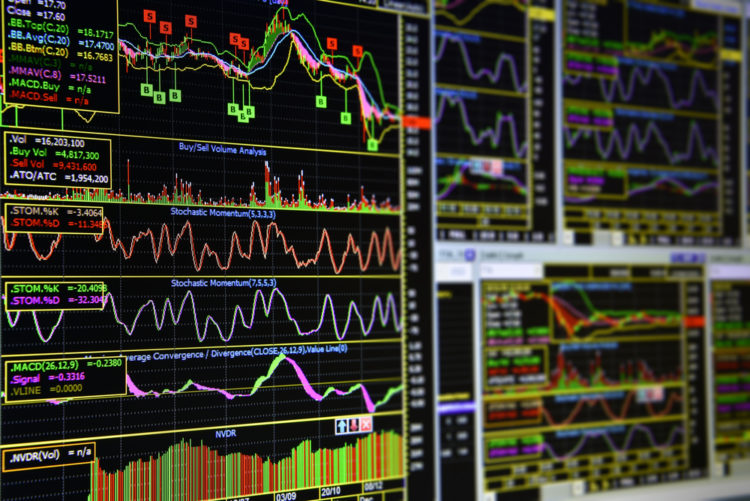Singapore — The physical commodity trading business will be transformed in the coming years by the onset of distributed ledger technologies such as blockchain, driven by the competitiveness and cost advantages that come with digitization.
 Early movers will be commodities such as oil that are well developed, trading hubs such as Singapore where critical mass in physical trading is concentrated, and trends such as electrification that are closely linked to digitization.
Early movers will be commodities such as oil that are well developed, trading hubs such as Singapore where critical mass in physical trading is concentrated, and trends such as electrification that are closely linked to digitization.
“The question of whether blockchain will change the way we do business is already answered for BP,” Iain Lawson, BP’s head of structured products, eastern hemisphere, said at the Inaugural S&P Global Platts Digital Commodities Conference in Singapore.
“There’s a full acceptance in the front office of any trading room in Singapore that blockchain will change not just how we trade, but potentially what we trade and who we trade with,” Lawson added.
Crude oil will be one of the first commodities where post-trade execution will be done through a process built on blockchain, a technology that helps digitize the paperwork by putting all transactions on a single platform.
“We are focusing on some oil markets initially. The first to go live is currently on track for November this year,” John Jimenez, interim chief executive at Vakt, said.
The first trade processed by Vakt will be for North Sea crude, followed by the Amsterdam Rotterdam Antwerp product barges market and then the US pipeline crude market, he said.
“It can be extended to other products. [The platform] is commodity agnostic from that perspective. There’s a small amount of tailoring needed to make it fit the market that we are talking about,” Jimenez added.
Vakt is backed by oil majors BP, Equinor and Royal Dutch Shell, commodity traders Gunvor, Koch and Mercuria, and commodity financing banks ABN-Amro, ING and Societe Generale. This industry backing gives it an inherent advantage over other digital startups.
The adoption of new technologies is critical for oil majors moving to reshape their identity as energy companies, and commodity traders who need a constant edge to remain ahead of competitors.
For banks, blockchain has the potential to do what electric vehicles are going to do for oil companies, BP’s Lawson said.
“The core business of a bank, if you think about it, is trust; and if that trust can be outsourced, then the business will be transformed in the same way that EVs are taking away the core part of many oil companies’ business. There’s inevitably going to be a transformation,” he said.
SPEED OF ADOPTION
However, like most industries, commodity trading also faces challenges in the pace of adoption.
Traders derive their rewards from the absorption of risk and by leveraging options in a physical deal that other market participants do not have, like having access to an oil cargo of a certain specification or an LNG cargo at a specific location or a ship or berth of a port at a given time.
Technologies like blockchain introduce a level of standardization and transparency that threaten to make this role of traders redundant.
Additionally, the context of distributed ledger technologies in trading is different from the retail sector such as Alibaba or Baidu, where the participation of small players is vital, Forrester Yang, blockchain application development general manager at Sinochem, said.
The commodities business needs the participation of incumbents and influencers such as regulators and state-owned enterprises, which poses a big challenge, he added.
At least in Singapore’s context, the regulatory environment is shifting in favor of new disruptive technologies.
Singapore has typically dominated the physical trading space, but expects to catch up in the derivatives trading space where London and New York have prevailed by using digital marketplaces, Satvinder Singh, assistant chief executive at Enterprise Singapore, said.
“We hope that in the not so distant future, these initiatives will help us support the discovery of spot commodity prices from Singapore and further strengthen our relevance as a physical derivative ecosystem,” Singh added.
There is still lack of clarity over how establishments would deal with the adverse outcomes of digital disruption such as the social impact through job losses, and over regulatory preparedness to accommodate new asset classes, instruments and modes of business.
There is little doubt, however, over how quickly the human element across businesses is being digitized, whether it is blockchain or any other technology.
“There is no question that a trading floor in five years’ time is going to look very, very different from a trading floor today, whether you are a part of a commodity trader, a part of a big oil company, or whether you are part of a bank,” Lawson said.
— Eric Yep, [email protected]
— Edited by E Shailaja Nair, [email protected]
Source: S&P Global Platts




























